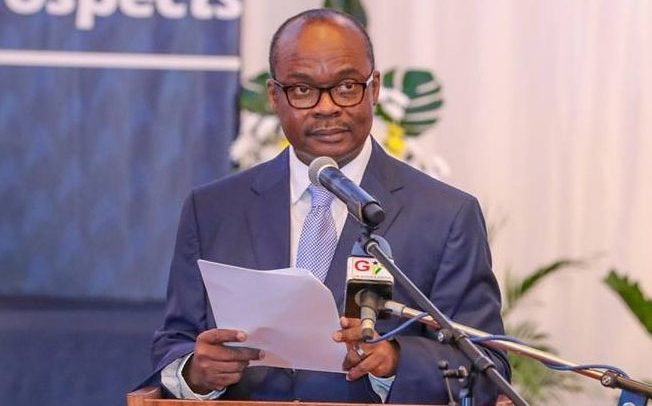Despite inflation trending downwards, the Monetary Policy Committee (MPC) of the Bank of Ghana, has for the third consecutive time, maintained the monetary policy rate at 14.5 percent, citing widening fiscal policy as the main concern.
Headline inflation, after peaking at 11.4 percent, has eased slightly above the upper band target to 10.5 percent due to decline in the COVID-related food price pressures.
However, data from the Bank of Ghana on budget execution for the first seven months has showed an overall budget deficit of 7.4 percent of GDP, against the revised target of 7.2 percent of GDP, indicating the COVID-19 pandemic continue to impact fiscal operations.
So even though inflation has begun falling, showing a somewhat improved outlook, the MPC says the fiscal figures pose heightened risk to macroeconomic stability, hence requires a cautious approach to be taken in easing the policy rate.
“Fiscal policy has been a source of considerable stimulus, driven by exceptional expenditures directed towards goods & services, capital expenditures, COVID-related spending, and in the energy sector. As at July 2020, the budget deficit was higher than programmed. Indications from banking data point to a faster budgetary execution in August relative to the annual target of 11.4 percent of GDP, supported by exceptional domestic and foreign financing sources.
The drivers of economic growth are returning to normal with prospects for a good recovery. Monetary and fiscal policies have been supportive, providing the necessary underpinnings for the economy to withstand the negative output shock arising from the pandemic.
However, this has come at the cost of moving away from the consolidation path and could pose a risk to long-term macroeconomic stability if decisive measures are not taken to define a feasible fiscal adjustment to stabilise debt. Under the circumstances, the Committee’s view is that risks to the immediate outlook for inflation and growth are broadly balanced and decided to keep the policy rate unchanged at 14.5 percent,” the MPC statement said.
The central bank maintained the policy in July for similar reasons, citing economic uncertainty that has emerged due to the pandemic.
However, the bank remains upbeat that the policy and regulatory relief measures it introduced have helped banks and specialised deposit-taking institutions provide support to critical sectors of the economy to mitigate the adverse impact of the pandemic.
On the real economy, the MPC statement further stated, despite the contraction in the second quarter, there is hope that the situation will be better in the third and fourth quarters as leading indicators of economic activity point to a recovery.
“A sustained level in consumer and business confidence, broad-based growth in the indicators of the CIEA are all supportive of positive growth conditions in the outlook. Following from the above, it is estimated that growth in 2020 will be between 2 and 2.5 percent,” the MPC statement said.










